
 Flash News
Flash News
Accident in Lushnje, four cars and a motorcycle involved
SPAK closed the investigations, Meta reacts: It was signed on the orders of Edi Rama
Defendant was taken from SPAK, Kryemadhi: Chief Prosecutor of BKH is Edi Rama
Laundered Çopjave money, arrested in Dubai Armis Stafa
The Democratic Party appeals the election results in Korça
Rubio: Dodik's actions threaten the security and stability of Bosnia and Herzegovina

US Secretary of State Marco Rubio has said that the actions of the President of Republika Srpska (RS), Milorad Dodik, pose a threat to the security and stability of Bosnia and Herzegovina, and undermine its state institutions.
"Our government calls on political leaders in Bosnia and Herzegovina to engage in constructive and responsible dialogue. We call on our partners in the region to join us in opposing this dangerous and escalating behavior," Rubio wrote on the social network X early Saturday.
Dodik decreed on March 5 the laws adopted by the Assembly of Republika Srpska - the Serb entity of Bosnia - which prohibit the work of the Court, the Prosecutor's Office, the State Investigation Agency (SIPA), as well as the High Judicial and Prosecutorial Council of Bosnia on the territory of this entity.
Responding to the reaction of the US Embassy in Sarajevo - which expressed concern about the enactment of unconstitutional laws - Dodik claimed on March 6 that the Trump administration does not hold the same positions as the previous Biden administration.
"Apparently, no one informed the staff at the US Embassy in Sarajevo that [Joe] Biden is no longer president," Dodik wrote on X.
"Today's reaction is a repetition of past times and we believe it does not reflect a balanced stance of the new administration," he added.
On March 7, the Constitutional Court of Bosnia and Herzegovina imposed a temporary measure and banned the implementation of these laws of the Serbian entity.
The Court, the Bosnian Prosecutor's Office and SIPA were established based on laws adopted by the Assembly of Bosnia and Herzegovina and those laws were confirmed by the State House of People. To be abolished, according to the state Constitution, a vote of the Assembly of Bosnia and Herzegovina is required.
The Republika Srpska Assembly adopted the laws on February 27, after the Bosnian Court sentenced Dodik to one year in prison and banned him from holding the office of RS president for six years.
The system of governance in Bosnia and Herzegovina – a country of about 3.1 million people – is among the most complex in the world.
Since the Dayton Peace Agreement, which was signed in 1995 and ended the war in Bosnia, the country has been made up of the Bosniak-Croat Federation and the ethnic Serb-dominated Republika Srpska, under a weak central government.
The Prosecutor's Office of Bosnia and Herzegovina announced that it has been conducting an investigation for months due to suspicions that the criminal offense of "attack on the constitutional order" has been committed.
The Bosnian Criminal Code provides for sentences of up to five years in prison and a ban on holding official office if someone "unlawfully attempts to change the constitutional order of Bosnia and Herzegovina or overthrow its highest institutions."
Dodik was found guilty and sentenced by the Court of First Instance for disobeying the decisions of the international High Representative, Christian Schmidt, and signing the decree declaring laws that Schmidt had previously declared invalid, laws that aimed to prevent the implementation of the decisions of the Bosnian Constitutional Court and the High Representative on the territory of the RS.
The Constitutional Court of Bosnia and Herzegovina has issued an interim measure for the non-implementation of the Law on the Special Register and Transparency of the Work of Non-Profit Organizations. The request was submitted by Kemal Ademović, Deputy Speaker of the House of Peoples of the Parliamentary Assembly of Bosnia and Herzegovina.
This law, adopted by the RS Assembly, in accordance with Russian law, imposes strict control over the activities of the civil sector in RS./ REL
Latest news



Italy/ 39-year-old Albanian man crashes to death while waiting to go to work
2025-05-27 20:15:03
SPAK's accusations against Meta, AP: Former president openly critical of Rama
2025-05-27 20:09:47
Accident in Lushnje, four cars and a motorcycle involved
2025-05-27 19:44:24


Rama eating pasta, photojournalist reveals the story behind the viral photo
2025-05-27 19:13:56
Meat with salmonella still on the market? AKU reacts: Fake news
2025-05-27 19:03:29
Violations of May 11, Lela: 'Database' ready, internationals are being informed
2025-05-27 18:47:40
Scandal with animal products in Kosovo, Minister of Agriculture questioned
2025-05-27 18:47:24
Congratulations... to the Albanian people
2025-05-27 18:20:00

"SP stole 2 mandates from us", Lapaj: Fier and Vlora regions must be recounted
2025-05-27 17:42:39

Kosovo takes control of another facility in Leposavic
2025-05-27 17:25:55



DP demands repeat elections in Gjirokastra and Vlora
2025-05-27 16:37:47
Should Berisha resign? Alimehmeti: Stages cannot be burned
2025-05-27 16:18:22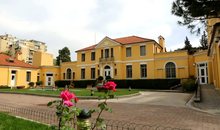


Sunscreen, five myths that endanger your health
2025-05-27 15:52:57

EC chief condemns Israeli attacks on Gaza: They are disgusting
2025-05-27 15:23:30



Defendant was taken from SPAK, Kryemadhi: Chief Prosecutor of BKH is Edi Rama
2025-05-27 14:47:32
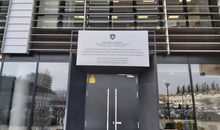
Police raid Kosovo's Ministry of Agriculture
2025-05-27 14:31:07
Laundered Çopjave money, arrested in Dubai Armis Stafa
2025-05-27 14:22:55
Tried to kill cousin in Italy? Case against Albanian from Kosovo closed
2025-05-27 14:12:33



Prostitution network busted, Brazilian woman declared wanted
2025-05-27 13:31:20

SPAK took the defendant, Meta reacts: I eagerly await the start of the trial
2025-05-27 13:11:06

A party with a dead body inside
2025-05-27 12:51:40



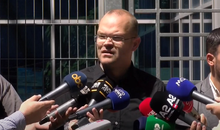
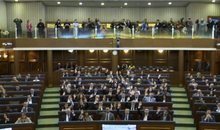
Session to constitute Kosovo Assembly fails for the 22nd time
2025-05-27 11:53:33
He passed away a few days ago, tributes are being held in honor of Artan Lame
2025-05-27 11:44:47
Reactions to Macron's slap
2025-05-27 11:32:35

Greek notary killed with intent to rob her, 3 Albanians arrested
2025-05-27 11:11:25
Aulona Kalaja appears at SPAK, files a complaint for the forgiveness of fines
2025-05-27 10:58:24

Meta will use Europeans' posts for AI training
2025-05-27 10:42:07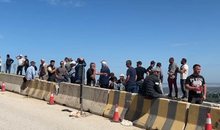

The Democratic Party appeals the election results in Korça
2025-05-27 10:23:11

Igli Tare appointed Milan Sporting Director
2025-05-27 10:03:54
Albanian caught with cocaine worth around 14 million euros
2025-05-27 10:00:56

Foreign exchange/ How much foreign currencies are bought and sold today
2025-05-27 09:40:13

Brussels presents 150 billion euro plan to strengthen EU defense capabilities
2025-05-27 09:14:33

He raped his minor daughter, 60-year-old man arrested (NAME)
2025-05-27 08:57:54


Artan Lame is being transported to his final residence today
2025-05-27 08:26:24
Horoscope, what do the stars have in store for you today?
2025-05-27 08:15:43
Weather forecast, sun and temperatures up to 29 degrees during the day
2025-05-27 08:01:32
Morning Post/ In 2 lines: What mattered yesterday in Albania
2025-05-27 07:47:24
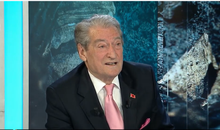




WHO calls for medical aid trucks to be allowed into Gaza
2025-05-26 21:46:31
Did he want to burn it by running in Vlora? Gjiknuri: Rama experimented
2025-05-26 21:39:25


REL: Serbian police order for the arrest of Kosovo policeman, "very unreal"
2025-05-26 21:01:48



Milan officially announces the appointment of Igli Tara as Sporting Director
2025-05-26 19:43:14

Former Kosovo MP released after being detained at border by Serbian authorities
2025-05-26 19:24:50
Magnificent buffet in Hanoi
2025-05-26 19:03:41

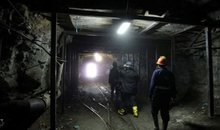

Migrant centers/ Kosovo government ready to discuss with the United Kingdom
2025-05-26 18:05:33

UN: Gaza in agricultural collapse, only 5% of land remains arable
2025-05-26 17:42:53
Former Ambassador: The US will react to the farce, it will upset many balances!
2025-05-26 17:34:26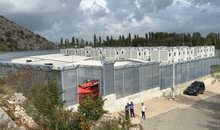


Fire in urban waste field, Libohova engulfed by thick smoke
2025-05-26 17:01:49
